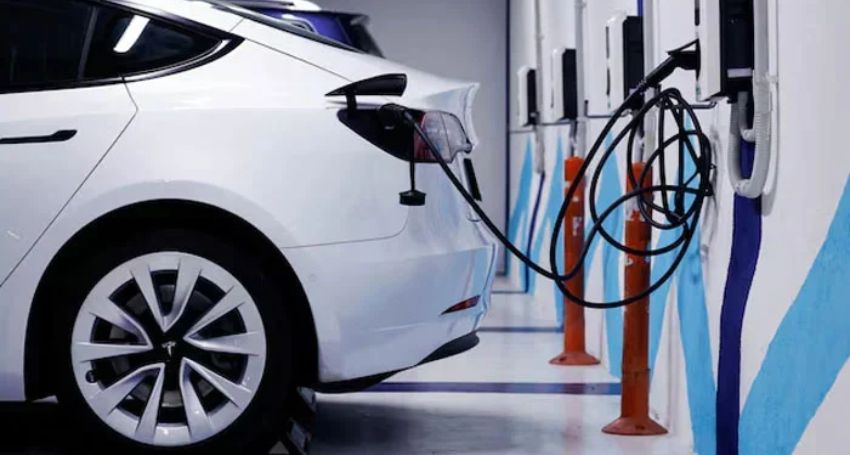
As the world shifts toward electric mobility, the need for advanced EV charging solutions has never been greater. Enter smart charging—a technology designed to optimize and enhance the way electric vehicles (EVs) are charged. Whether you’re a current EV driver or someone considering switching to an electric vehicle, understanding how smart EV charging works and the benefits it offers can improve your overall charging experience. In this article, we will explore the concept of smart charging, how it functions, and why investing in a smart EV charger can revolutionize your charging system.
What is Smart Charging?
Smart charging refers to the advanced technology that enables the optimization of the EV charging process by allowing the charger to communicate with the charging station and the grid. Unlike conventional charging, smart charging enables EV drivers to adjust charging schedules, control charging sessions, and optimize charging during off-peak hours.
With smart charging, the charging station sends real-time data to a cloud-based charging management system, allowing for better control and efficiency. Smart charging technologies can adjust the charging speed, prioritize energy use, and even incorporate renewable energy sources like solar or wind, making it efficient and sustainable option for EV owners.
How Does a Smart EV Charger Work
A smart EV charger operates by connecting the electric vehicle to the charging infrastructure, communicating data about the state of charge, charging power, and available energy from the grid. This charging system allows the EV owner to control the charging session through a mobile app or platform, ensuring that the car is charged when electricity rates are lowest or when there’s an abundance of renewable energy.
Smart EV chargers also allow the user to monitor and schedule charging times, ensuring that charging happens during off-peak hours or when energy is cheaper. These chargers can also adapt the charging speed depending on the capacity of the grid, further optimizing energy use.
Benefits of Smart Charging
The benefits of smart charging go beyond simple energy savings. Here are a few reasons why smart charging is a game-changer for EV drivers:
- Cost Savings: By scheduling charging during off-peak hours, smart charging helps reduce electricity costs, especially in regions with variable energy pricing.
- Efficient Energy Use: Smart chargers can draw power from renewable energy sources, reducing the reliance on fossil fuels and lowering the carbon footprint of EV charging.
- Better Battery Health: Smart charging allows for gradual charging, reducing stress on the EV batteries and prolonging their lifespan.
- Convenience: With remote control via apps, EV owners can start and stop charging or adjust settings without being physically near the charging station.
Why Do You Need a Smart EV Charger at Home?
Having a smart EV charger at home is not just a convenience but a necessity for EV owners who want to maximize their charging efficiency and reduce energy costs. A smart charger can be programmed to only charge during specific hours, such as overnight when electricity is cheaper, or during the day when renewable energy is more plentiful.
Home smart charging stations also provide flexibility, allowing you to optimize charging schedules around your lifestyle and the charging needs of your vehicle. For instance, if you’re not driving much, you can set slower, more efficient charging times, helping to preserve battery health.
How Smart Charging Affects EV Battery Health
One of the major concerns for EV owners is the longevity of their electric vehicle’s battery. Frequent, high-speed charging can degrade EV batteries over time, but smart charging helps mitigate this issue. By regulating the charging power and scheduling charging times when the vehicle doesn’t require a full charge, smart charging can reduce the wear and tear on the battery.
Smart EV chargers can also track the state of charge and ensure the battery is never overcharged, a common cause of premature battery degradation. With the ability to gradually charge the battery instead of delivering a full charge in a short time, smart charging contributes to better battery health and longevity.
What is Bidirectional Charging
Bidirectional charging is an exciting feature of smart charging that allows energy to flow both ways between the electric vehicle and the grid or home. In other words, your EV can serve as a backup power source for your home or even supply energy back to the grid during peak hours.
This type of smart EV charging is particularly useful for households with renewable energy systems like solar panels, as it allows them to store excess energy in the vehicle’s battery and use it when needed. Bidirectional charging is a prime example of how smart charging not only benefits EV drivers but also contributes to a more resilient and efficient energy grid.
Smart Charging Vs Traditional Charging
While traditional vehicle charging simply transfers energy from the grid to the EV, smart charging adds layers of functionality and control. Here are some key differences between the two:
- Traditional Charging: Provides a direct, constant flow of energy until the vehicle is fully charged. The driver has no control over the timing or speed of the charge, and the process is typically less efficient.
- Smart Charging: Uses a management system to control the timing, power, and energy source, often integrating with renewable energy systems. Smart charging also offers features like charging schedule optimization and bidirectional charging.
By giving EV drivers greater control over how and when they charge their vehicles, smart charging is a much more efficient and sustainable solution.
Optimize EV Charging with Smart Charging Technologies
To get the most out of your smart charging system, it’s important to optimize charging settings to match your driving habits and the availability of low-cost energy. Here are some tips for EV owners looking to make the most of smart EV charging:
- Use charging schedules: Program your smart charger to charge during off-peak hours to save money and reduce strain on the grid.
- Monitor your charging sessions: Track your charging times and the amount of energy used through the smart charger app to ensure efficiency.
- Prioritize renewable energy: Some smart EV chargers can be configured to prioritize energy from renewable sources, ensuring your EV charging is as green as possible.
Smart Charging for Public Charging Stations
Public charging stations are increasingly equipped with smart charging capabilities, allowing for better management of multiple vehicles charging simultaneously. Smart charging stations use real-time data to allocate energy where it’s needed most, ensuring that all vehicles get an adequate charge without overloading the grid.
For EV drivers using public stations, smart charging provides a more streamlined experience, often allowing them to reserve a charge point ahead of time and receive updates on the status of their charging session. Additionally, public smart charging stations can integrate with local grids to use renewable energy and distribute energy more efficiently during peak times.
The Future of EV Charging
As the demand for EVs grows, the need for advanced charging infrastructure becomes more pressing. Smart EV charging offers a solution that not only benefits EV drivers but also supports broader energy management goals by integrating with renewable energy sources and improving grid stability.
Investing in smart EV chargers at home or using smart charging stations for public charging can lead to significant cost savings, improved battery health, and a more convenient charging experience. With the rise of features like bidirectional charging and cloud-based charging management systems, smart charging represents the future of EV charging.



